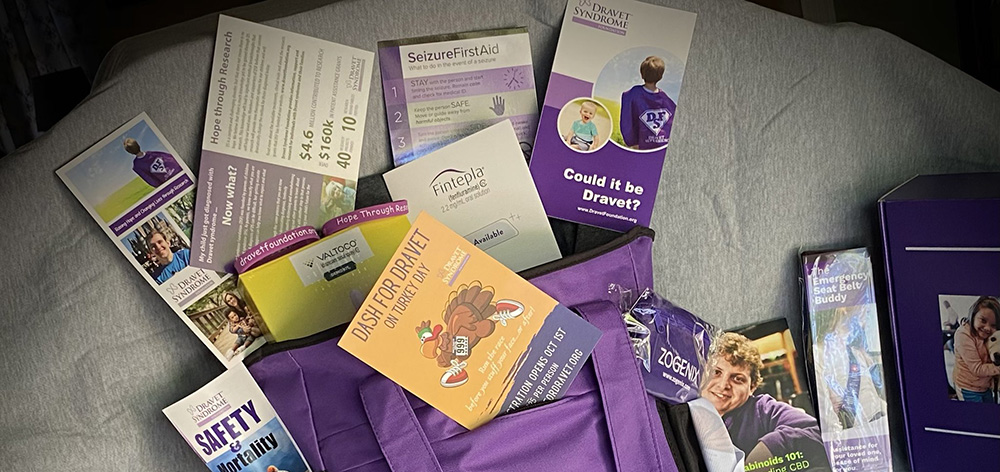
In concert with Epilepsy Awareness Month, a collaboration of three non-profit organizations announced the launch of the Seizure Action Plan (SAP) Coalition to educate people with epilepsy, their caregivers and healthcare professionals about seizure emergency rescue protocols and the importance of personalized seizure action plans.
The SAP Coalition will lay the groundwork for a new awareness week in 2021 to coincide with International Epilepsy Awareness Day on February 8, as well as a website with resources and a social media awareness campaign.
The partnering organizations include the Dravet Syndrome Foundation (DSF), the Lennox-Gastaut Syndrome (LGS) Foundation and the Tuberous Sclerosis Alliance (TS Alliance).
People with severe forms of epilepsy called developmental and epileptic encephalopathies (DEE) frequently experience uncontrollable seizures, which may contribute to severe cognitive and behavioral impairments starting at an early age.
“Because of the complexity and dangers for anyone with DEE, education about seizure rescue medications and having an action plan in place are essential,” said Kari Luther Rosbeck, TS Alliance President & CEO. “A seizure emergency plan developed by the patient/caregiver and patient’s primary neurologist is imperative in assuring appropriate care in a medical setting with healthcare professionals who are not familiar with the patient’s disease and medical history. The SAP Coalition will work to increase awareness of these issues.”
Many patients do not currently have seizure emergency plans and by making them a priority in their healthcare plans, they can help ensure immediate and appropriate action is taken during a seizure emergency. People with DEE have a wide range of seizure types. Most with DEE have poor seizure control, which significantly impacts their overall quality of life. Providers at rural or community hospitals may also be unfamiliar with the more advanced treatment needed to manage the frequent emergency seizure interventions often required by DEE patients.
“Patients with Dravet syndrome experience frequent, and often prolonged, seizures. Having a plan in place for intervention with rescue medications is crucial to assuring the safety and quality of life for our patient population and other DEEs,” said Mary Anne Meskis, Executive Director of the Dravet Syndrome Foundation. “This new collaboration will allow a much-needed opportunity to educate healthcare professionals, caregivers and the general community on what a rescue plan is and its significance in optimal patient care.”
A strategy to address seizures including an emergency rescue plan developed by the patient’s primary neurologist is imperative in assuring appropriate care in a medical setting with healthcare professionals who are not familiar with the patient’s disease and medical history. Seizure emergency plans also help to guide educational personnel, therapists, caregivers and others involved in the patient’s day-to-day care to assure an immediate and appropriate response can be taken to shorten the duration of a seizure or slow or stop seizure clusters. Even patients with well-controlled epilepsy can still significantly benefit from seizure action plans in case they are at school, work or another setting where those around them may not be familiar with their condition.
“Emergency intervention for seizures using rescue medications is prominent in the LGS and DEE communities,” said Dr. Tracy Dixon-Salazar, Director of Research and Strategy at the LGS Foundation. “For families living with LGS, more than 90% report having prolonged seizures or seizure clusters (>10 minutes), and emergency rescue medication use is frequent. This effort to increase education about seizure emergency plans is critical so every family can be prepared to act quickly to halt seizures that won’t stop on their own.”
Neurelis, Inc. is supporting the coalition’s launch through an unrestricted education grant as its presenting sponsor. UCB, Inc. is also providing funding.
“We are very pleased to be backing this important initiative,” said Craig Chambliss, President and Chief Executive Officer of Neurelis. “The use of seizure rescue plans is a vital component of managing seizure emergencies. We are excited to partner with these exceptional organizations in supporting programming that helps improve the lives of people living with epilepsy and those who care for them.”
"emergency" - Google News
November 02, 2020 at 12:12PM
https://ift.tt/34Q9dUp
New Coalition Launches to Promote Importance of Seizure Emergency Plans - The Ritz Herald
"emergency" - Google News
https://ift.tt/2VVGGYQ
https://ift.tt/3d7MC6X
emergency
Bagikan Berita Ini














0 Response to "New Coalition Launches to Promote Importance of Seizure Emergency Plans - The Ritz Herald"
Post a Comment